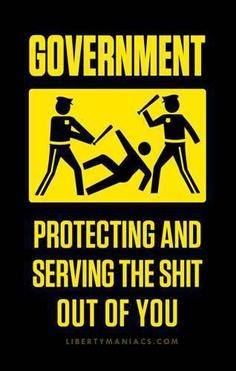Statist claim: Compulsory government is in the public interest.
Fallacy:
"Politicians/Laws/Regulations serve the greater good (or public good)."
Response:
Since there is no such entity as “the public,” since the public is merely a number of individuals, the idea that “the public interest” supersedes private interests and rights, can have but one meaning: that the interests and rights of some individuals take precedence over the interests and rights of others.
— Ayn Rand, "The Pull Peddlars," Capitalism: The Unknown Ideal

Who determines what is good, and what scale to used to define what is greater or lesser? Groups are fictions, and only individuals exist. Claiming that harm to an individual benefits a group is obviously an outright fabrication. It is an attempt to justify harm to one individual in order to benefit another individual, and therefore an attempt to justify a criminal act. (LT)
There is no one greater good. There are individual wants (which may not necessarily be "good" for a person if fulfilled); there are as many "goods" as there are individuals involved in a matter. There may be some overlap. There is still no "greater good".
Extortion and other types of initiation of force remain wrong, no matter the fairy tales used to attempt to justify them. Nobody knows the "sum good of everyone", and it can't be calculated (it's analogous to calculating utilities). That's why "greater good" has always been used to justify someone's vision of a potential good for some and a definite harm to others. (DBR)
The only "common good" is in the Pareto sense of some are better off and no one is worse off. This is not what utilitarian statists mean by "common good." They mean that some people are sacrificed to benefit others, with rulers deciding who gets fucked and who gets the benefits. [HB]